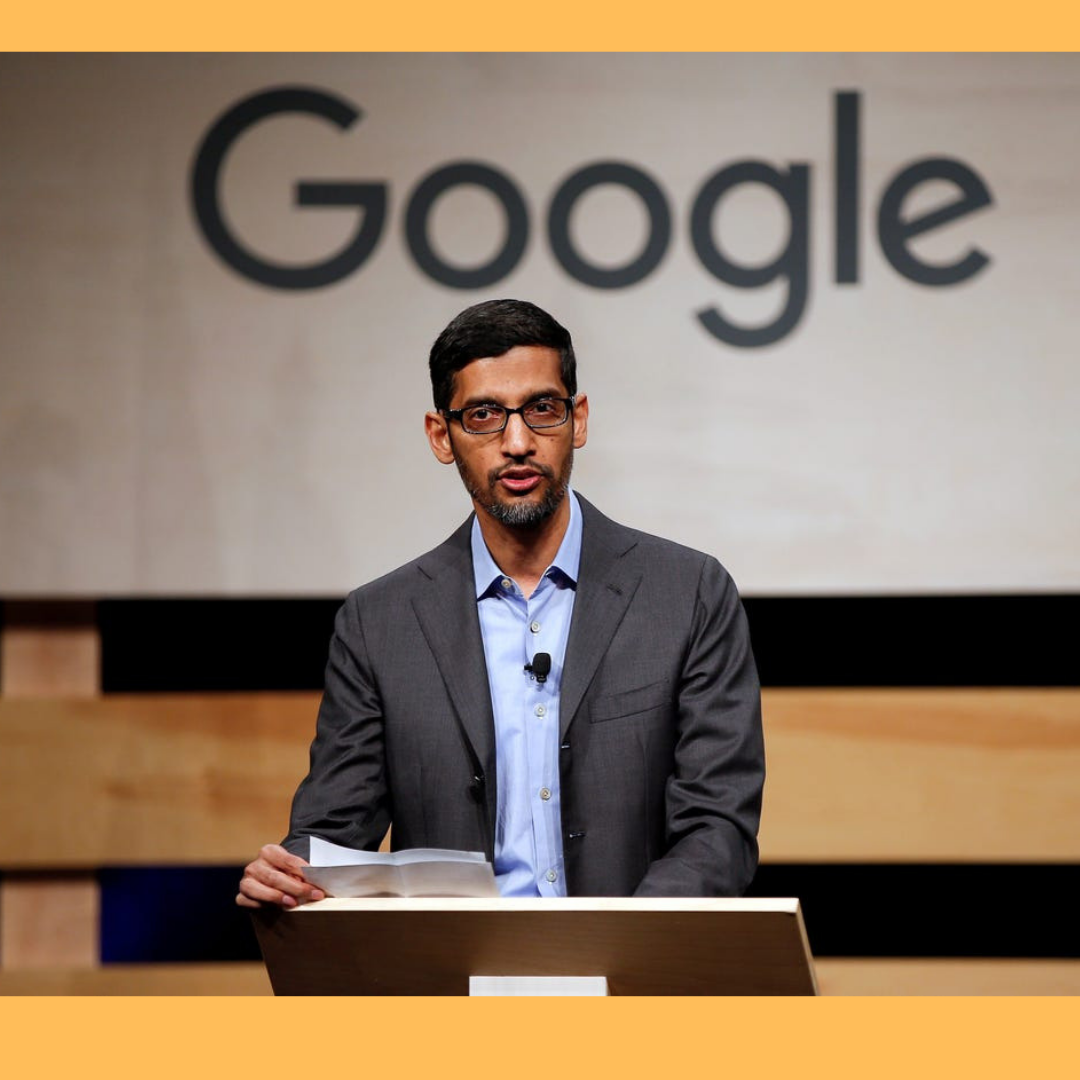


Gmail, Google's popular email service, recently reached a major milestone - its 20th year anniversary. Initially thought to be an April Fool's Day joke, Gmail's launch in 2004 disrupted the email industry with its 1 GB storage capacity, advanced search capabilities, and later introduced features like Google Meet. With over 1.8 billion active users, Gmail continues to be the leading email service globally, dominating the market with a market share of 76% in the US. Through a social media post, Google's CEO Sundar Pichai congratulated Gmail on its anniversary, recognizing its remarkable journey and impact on communication.
Gmail's Journey from April Fools' Day Joke to Global Email Giant
Gmail, Google's ubiquitous email service, recently celebrated its 20th anniversary. Initially dismissed as an April Fools' Day prank, Gmail has since transformed the email landscape with its groundbreaking features and massive user base.
Humble Beginnings and Disruptive Innovation
On April 1, 2004, Google unveiled Gmail as a joke. However, the service was not a mere fabrication. It offered an unprecedented 1 GB of storage space, far exceeding the industry standard at the time. This generous capacity allowed users to store large files and email archives without the limitations of traditional email platforms.
Gmail also introduced advanced search capabilities, enabling users to effortlessly find specific emails based on keywords, attachments, and even fragments of text. This feature revolutionized email organization and retrieval.
Growth and Dominance
In its early years, Gmail's generous storage and search capabilities attracted a loyal following. By 2012, it surpassed Microsoft's Outlook as the most popular email service globally. Today, Gmail boasts over 1.8 billion active users, commanding a dominant 76% market share in the United States.
Key Features and Impact
Over the years, Gmail has evolved beyond its initial email offering. It now includes a suite of productivity tools, such as Google Calendar, Google Drive, and Google Meet, making it a comprehensive communication and collaboration hub.
Gmail's impact on communication has been profound. It has made email accessible to a broader audience, facilitated global connectivity, and streamlined business processes. It has also fostered the rise of cloud-based email and collaboration platforms.
Top 5 FAQs
1. What is Gmail's origin story? Gmail was initially released as an April Fools' Day joke in 2004. However, it quickly gained traction due to its innovative features and generous storage capacity.
2. How did Gmail disrupt the email industry? Gmail disrupted the email industry by offering 1 GB of storage space, advanced search capabilities, and a user-friendly interface. It also made email more accessible and convenient for users around the world.
3. What are some of Gmail's key features? Gmail's key features include 15 GB of free storage space, advanced search capabilities, spam and malware protection, and integration with other Google products like Calendar, Drive, and Meet.
4. How many active users does Gmail have? Gmail has over 1.8 billion active users worldwide, making it the most popular email service globally.
5. What is the future of Gmail? Google is continually developing new features for Gmail, including enhanced security, AI-powered email organization, and improved collaboration tools. Gmail is expected to remain a dominant force in the email market for years to come.

A new Randstad India report reveals insights about India's youngest workforce cohort and their expectations for their careers. Gen Z prioritizes financial security, flexibility, and a sense of purpose in their job, requiring employers to go beyond just providing a decent salary. With a preference for a combination of a full-time job and a side hustle, Gen Z's mobility is driven by the pursuit of growth, making it crucial for employers to invest in continuous learning and foster inclusive cultures to retain this transformative generation.

According to Randstad India's latest report, young professionals in India are redefining workplace norms by prioritizing factors like pay, flexibility, and personal values. The report also reveals that Gen Z values continuous learning through AI tools and is more concerned about the impact of AI on job security. This calls for businesses to adapt to changing preferences and attract the next generation of talent by offering a mix of technical excellence and personal autonomy. The findings also emphasize the need for inclusive cultures and flexible policies in order to build resilient, future-ready businesses.

With the Gen-Z workforce making up about 27% of India's population, companies are struggling to retain this energetic cohort. A recent report by Randstad highlights the need for a change in mindset from employers towards the Gen-Zs. While they have long-term aspirations, they are also quick to move on to new opportunities if they feel undervalued or underpaid. This poses a challenge for employers who must find ways to keep this ambitious and driven generation engaged and progressing within their organizations.

Union Home Minister and Minister of Cooperation, Amit Shah, congratulated Amul and Indian Farmers Fertiliser Cooperative Limited (IFFCO) for securing the first and second ranks in the global ranking for cooperatives. This achievement is a testament to the boundless potential of cooperatives, which are being transformed into a global model of empowerment and self-reliance by Prime Minister Narendra Modi. The dairy sector, which is the backbone of rural livelihoods in India, has combined farmer-led cooperatives, women's participation and scientific practices to achieve remarkable progress. Additionally, the National Co-operative Exports Limited, set up by the government, has achieved a significant milestone in exporting agricultural commodities.

After purchasing his retirement property in Swansea, David Barlow has been forced to live in a motorhome on his driveway due to persistent damp and mould issues. Despite complaints to his property managers, the issue has not been resolved and Barlow fears for his belongings. The problem is believed to have been caused by faulty insulation installed by British Gas, but the company denies responsibility. This situation has put a hold on Barlow's retirement plans and has left him feeling frustrated and stuck.

US-based private equity firm Tillman Global Holdings (TGH) is reportedly in advanced discussions to invest up to $6 billion in Vodafone Idea Ltd, which could lead to a change in operational control. However, the investment is contingent on the Indian government providing comprehensive relief covering AGR and spectrum payment dues. If the deal goes through, it could dilute existing promoter holdings, including those held by Aditya Birla Group and Vodafone Plc. While the news has boosted investor sentiment, analysts caution that government approval and debt restructuring clarity are key to the execution of the deal.

The Indian real estate market is undergoing a major shift with rising home prices, as apartments priced between Rs 2 crore and Rs 5 crore now dominate sales. This change has been highlighted by a Redditor who expressed concerns over the dwindling chances of middle-class buyers to afford a house. According to a Moneycontrol report, the trend is a result of big developers focusing more on luxury projects, leaving affordable housing in the backseat. As a result, home ownership for the middle-class seems like a distant dream, with even government employees struggling to afford these expensive properties.

Vodafone Idea's share price saw a significant increase of 14% after the Supreme Court provided further clarity on the AGR dues issue. The court clarified that the government can consider providing relief for both additional and reassessed AGR dues, giving some respite to the struggling telecom operator. At the time of writing, Vodafone Idea's share price was trading at Rs 9.51, with a gain of 8.93%. This comes after the court's previous hearing which did not provide a clear ruling on whether the relief applies to only Vodafone Idea's plea or the entire pending AGR amount of nearly Rs 80,000 crore.

After failing to meet Apple's internal sales expectations, the ultra-thin iPhone Air is facing a significant production cut of 80%. The initial prediction of reducing production by one million units has now been deemed insufficient, highlighting deeper concerns about the device's market performance. This setback raises questions about the competitive landscape of high-end smartphones and hints at Apple's next possible move towards a foldable iPhone.

In an effort to secure their rights to their intellectual property, the Board of Control for Cricket in India (BCCI) has announced a new copyright agreement that will be in effect until 2025. This move ensures that BCCI maintains its exclusive right to reproduce, broadcast, and use any of its content, including images and videos, for commercial purposes. With the deal also covering the use of BCCI's logos and trademarks, it gives the governing body a tighter grip over its assets and sets a precedent for other sports organizations to follow suit.